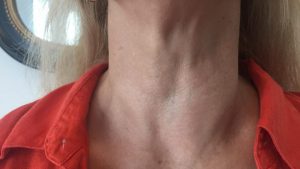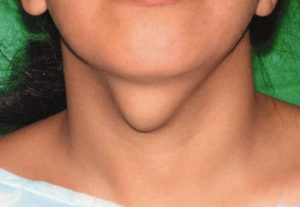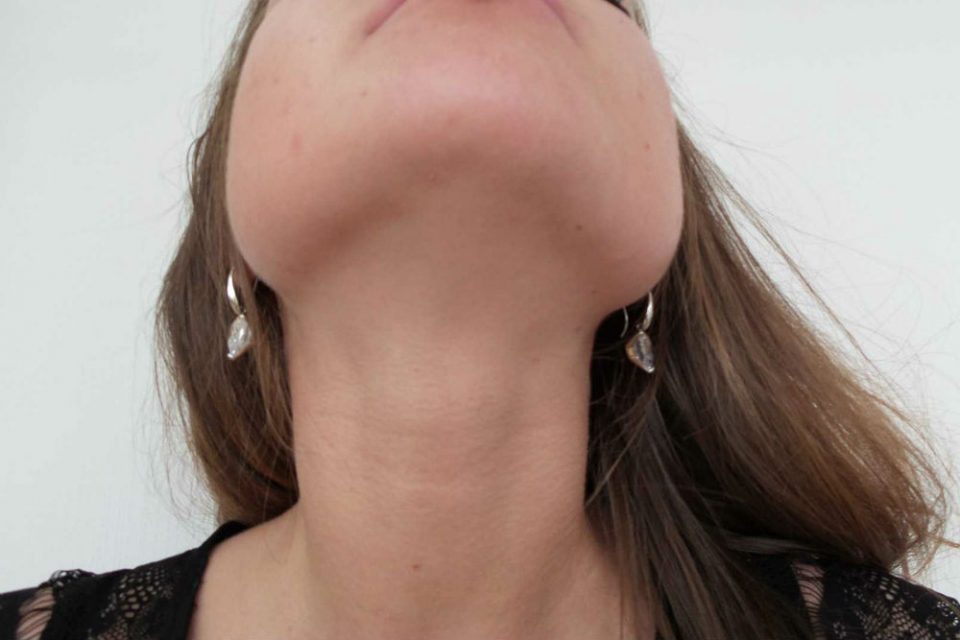Diffuse-toxic goiter (DTG) is an inflammatory (autoimmune) disease of the thyroid gland, manifested by the syndrome of thyrotoxicosis = hyperthyroidism (see the article “Tests for self-diagnosis of thyroid dysfunction”) – that is, the effect on the body of an excess amount of thyroid hormones – T3 and T4 …
DTZ is quite common in the northwestern region of Russia and deserves close attention to itself. And why, you will understand after reading the following short theses.
So, if you are diagnosed with Diffuse-toxic goiter.
DTZ is a life-threatening condition! There is such a complication of DTZ – thyretoxic crisis (by analogy with a hypertensive crisis), in its outcome this condition has acute heart failure! And a thyrotoxic crisis will develop if DTZ is not treated at all (for more than 2-4 years from the onset of the disease).
DTZ is “prone” to relapse (that is, the return of the disease again). Especially, in case of improper treatment, early interruption of treatment (which “patients sin”, since the treatment is quite long 1-2 years). But also independently, subject to all conditions of treatment, relapse of DTZ, unfortunately, can be.
More than 2 relapses of DTG – is an indication for the removal of the thyroid gland promptly or with the help of radioiodine therapy (there will be a separate article about it).
When treating DTZ, the following tests must be taken regularly to control the hormonal background: TSH, free T4, free T3, and go to the doctor with the test results at least 1 time in 2 months You cannot change the dose on your own!
I know from experience: treating DTZ is a whole art, since, often, the disease is combined with another thyroid pathology, for example, AIT (autoimmune thyroiditis), which complicates therapy, etc.).
DTZ is not a contraindication to pregnancy and breastfeeding. During pregnancy, the course of DTZ always stabilizes!
Thyreostatics (drugs for the treatment of DTG) are not contraindicated during pregnancy and lactation, you just need to choose the right dose with your doctor.
DTZ during pregnancy is less common than hypothyroidism (and DTZ is less dangerous to the fetus than hypothyroidism).
Iodine preparations are not taken with DTZ! But L-thyroxine is taken. There is such a treatment regimen for DTZ, called “block-replace”, which includes both thyreostatics and L-thyroxine, it is also used when DTZ is combined with AIT.
DTZ does not exclude the simultaneous development of other diseases of the thyroid gland – nodular goiter, AIT, thyroid cancer.
During the course of DTZ, any overheating should be avoided: being in a bath, sauna, in the sun, in a solarium. This can provoke a relapse!
DTZ is an acute condition, not a chronic one.
The tendency to DTZ is inherited.
Don’t be surprised: DTZ is triggered by stress https://en.wikipedia.org/wiki/Psychological_stress!
The most unpleasant aesthetic complication of DTG (it pleases that not all patients have) is thyrotoxic ophthalmopathy! (in the popular way “bulging”). This is an edema of the eyelids, tissue behind the eyes, which gives the impression of “out of the orbits” of the eyes. To avoid this condition, first of all, it is necessary – to quit smoking, regularly go to the doctor and adjust the dose of the drug, see an ophthalmologist – an endocrinologist (he will conduct an examination, prescribe treatment and send it to the ultrasound of the orbits to clarify the further prognosis).
In case of severe DTZ, hospitalization is indicated.
A complete cure occurs in 50% of patients with DTG!
